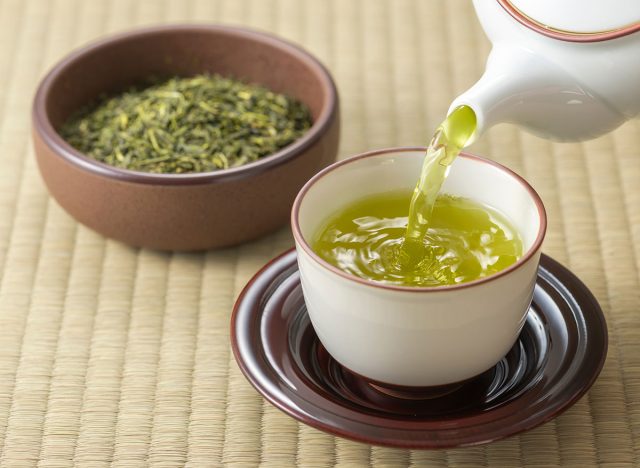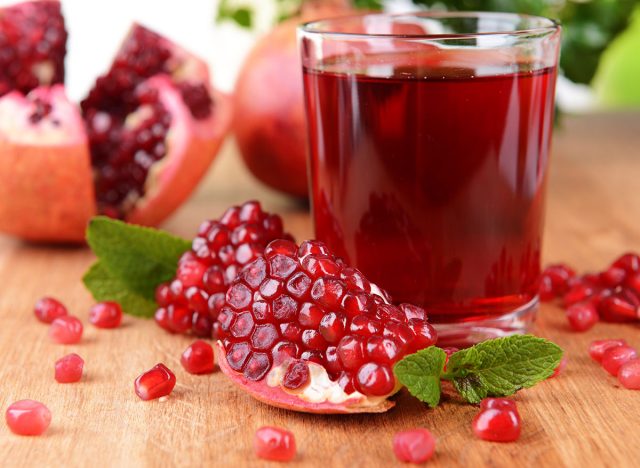Forgetting where you put your keys or tripping over a word you can't remember is usually a normal part of the aging process. In fact, memory loss is extremely common because your brain is undergoing many changes as your body gets older.
There is always the possibility that your memory loss may be pointing toward something a little more serious, which could mean that checking in with your doctor is a good idea. But if you're experiencing some mild cognitive changes, there may be some things you can change to your daily routine to help.
For example, Mayo Clinic says that staying social, doing daily mental exercises, staying physically active, and incorporating brain-healthy foods and drinks can all help improve your cognitive state.
And to learn more about switching to a brain-healthy diet, we talked with Amy Goodson, MS, RD, CSSD, LD, author of The Sports Nutrition Playbook and a member of our medical expert board, who gave us her advice on drinking habits you can include in your day to help with your memory loss.
Adding coffee to your morning.

This is amazing news for coffee lovers. According to Goodson, morning coffee can be a great addition to your daily diet when it comes to your brain health.
"Coffee contains powerful antioxidants, including hydrocinnamic acids and polyphenols, which help buffer free radicals (aka the bad guys) in your body by reducing their ability to damage cells," she says. "In fact, drinking coffee long-term has been linked to a reduced risk of neurological diseases, such as Parkinson's and Alzheimer's."
It's important to note that drinking too much caffeine later on in the day may disrupt your sleep, and getting enough restful sleep is key in protecting your cognitive health. For example, research shows that getting adequate sleep is linked to lowering mental fatigue and improving memory.
Sipping on green tea.

Along with drinking coffee, drinking green tea can also help improve your memory and cognitive abilities as well.
"Green tea is rich in polyphenols and antioxidants that could protect the brain from mental decline and reduce the risk of Alzheimer's and Parkinson's," says Goodson. "It also contains epigallocatechin gallate, or EGCG, which is another powerful antioxidant that helps prevent cellular damage."
Not only that, but the high levels of antioxidants in green tea have also been known to help lower cholesterol, improve metabolism and weight loss, and even help to prevent certain cancers.
Adding pomegranate juice to your beverage routine.

"With no added sugar, no preservatives, and no fillers, POM Wonderful 100% Pomegranate Juice, on average, contains four times the antioxidants of green tea," says Goodson. "Pomegranates also have potent anti-inflammatory properties and thus can contribute to lowering chronic inflammation in the body."
Pomegranate juice can also provide your body with vitamin C, can help digestion, and can also improve heart health, as well.
Limiting your alcohol consumption.

Studies have continually shown that even moderate alcohol consumption can negatively impact your brain health.
Another research study from JAMA Network found that older adults who had an average of about 14 drinks a week scored lower on cognitive ability tests than those who only had about one drink per week.
Research has not concluded that you need to avoid alcohol altogether. In fact, many of the world's healthiest regions include red wine in their diets. However, it's safe to say that limiting your consumption will be helpful to your brain and overall health.
No comments:
Post a Comment